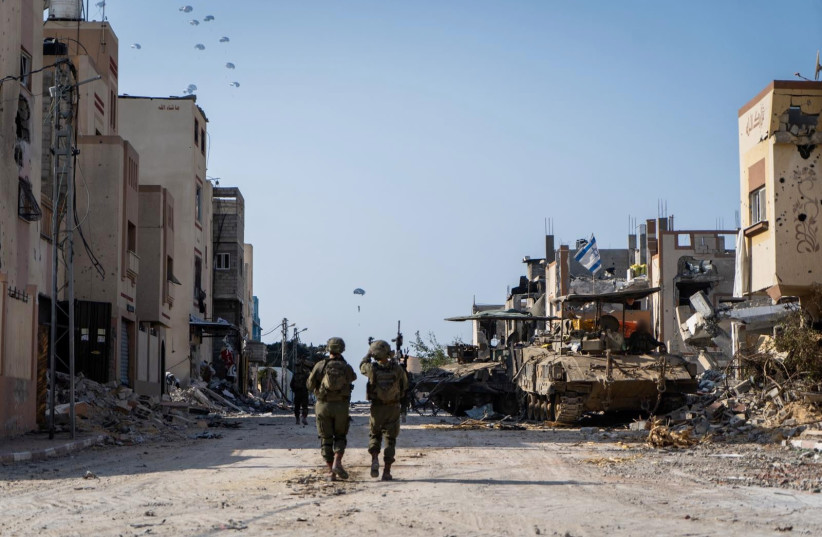There are no plans to place American troops in Gaza to ensure the delivery of humanitarian aid, the Pentagon said as it eyed the creation of a maritime corridor by which to deliver goods to the enclave.
“There are no plans to send any US forces into Gaza to my knowledge,” Pentagon spokesperson Major General Pat Ryder told reporters in Washington on Tuesday.
He spoke as the US military this week waded into the thorny issue of the delivery of humanitarian assistance to Gaza, as the combined efforts of the United Nations and the Israeli army had failed to ensure that the 2.3 million Palestinians in the enclave received an adequate amount of food.
The United States military airdropped 38,000 ready-to-eat meals into the enclave on Tuesday, following a similar operation on Saturday.
When asked if the Pentagon is frustrated that it has to conduct dangerous and expensive airdrops because of the way Israel is conducting its operation, Ryder laughed and said, "The Pentagon doesn't get frustrated. We just get busy."

Challenges to a maritime corridor
The US is expected to play a "supporting" role in a maritime corridor that will expedite aid into Gaza either through commercial or contracted vessels, according to Ryder.
Among the complicating issues is the absence of a port-large encounter for cargo ships to dock.
To circumvent that problem, one proposal on the table even before the war has been the possibility of cargo ships docking in Cyprus. Their goods would be inspected there and then shipped to Gaza on smaller maritime vessels.
“You can move more volume in -- in ships, whether they're military or commercial ships,” Kirby said, as he noted the immediate benefits of those options, but noted that it's problematic because “stuff has to get ashore. Then it has to get loaded onto vehicles and then trucked in.”
Until the war, most goods intended for Gaza that came from overseas were on cargo ships that docked in Israeli ports and then were trucked to the enclave through the major commercial crossing at Kerem Shalom.
“The best and most efficient way to get aid into people in a confined space like that in a very urban environment is on the ground,” he said.
That is why, he said, the US is pushing Israel to increase the flow of goods into Gaza and to open more crossings into the enclave.
Kirby said that a maritime route requires “a heavier logistics lift and some infrastructure ashore and very much going to need the support of allies and partners.”
Both Kirby and Ryder fielded questions from reporters about the role the US is playing in helping to provide Israel with military assistance for its war against Hamas in Gaza includes aerial bombings while at the same time airdropping food into the enclave.
“The President still believes that it's important for Israel to have what it needs to defend itself against a still viable Hamas threat. And maybe some people have forgotten what happened on the 7th of October, but President Biden has not, Kirby said.
